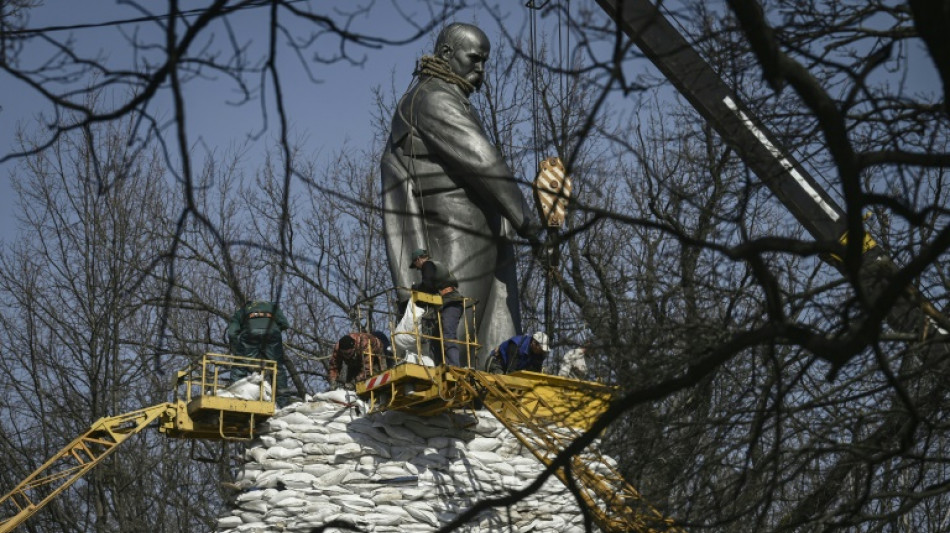
-
 Heart attack ends iconic French prop Atonio's career
Heart attack ends iconic French prop Atonio's career
-
SKorean chip giant SK hynix posts record operating profit for 2025

-
 Greenland's elite dogsled unit patrols desolate, icy Arctic
Greenland's elite dogsled unit patrols desolate, icy Arctic
-
Dutch tech giant ASML posts bumper profits, cuts jobs

-
 Musetti rues 'really painful' retirement after schooling Djokovic
Musetti rues 'really painful' retirement after schooling Djokovic
-
Russian volcano puts on display in latest eruption

-
 Thailand uses contraceptive vaccine to limit wild elephant births
Thailand uses contraceptive vaccine to limit wild elephant births
-
Djokovic gets lucky to join Pegula, Rybakina in Melbourne semi-finals

-
 Trump says to 'de-escalate' Minneapolis, as aide questions agents' 'protocol'
Trump says to 'de-escalate' Minneapolis, as aide questions agents' 'protocol'
-
'Extremely lucky' Djokovic into Melbourne semi-finals as Musetti retires

-
 'Animals in a zoo': Players back Gauff call for more privacy
'Animals in a zoo': Players back Gauff call for more privacy
-
Starmer heads to China to defend 'pragmatic' partnership

-
 Uganda's Quidditch players with global dreams
Uganda's Quidditch players with global dreams
-
'Hard to survive': Kyiv's elderly shiver after Russian attacks on power and heat

-
 South Korea's ex-first lady jailed for 20 months for taking bribes
South Korea's ex-first lady jailed for 20 months for taking bribes
-
Polish migrants return home to a changed country

-
 Dutch tech giant ASML posts bumper profits, eyes bright AI future
Dutch tech giant ASML posts bumper profits, eyes bright AI future
-
South Korea's ex-first lady jailed for 20 months for corruption

-
 Minnesota congresswoman unbowed after attacked with liquid
Minnesota congresswoman unbowed after attacked with liquid
-
Backlash as Australia kills dingoes after backpacker death

-
 Brazil declares acai a national fruit to ward off 'biopiracy'
Brazil declares acai a national fruit to ward off 'biopiracy'
-
Anisimova 'loses her mind' after Melbourne quarter-final exit

-
 Home hope Goggia on medal mission at Milan-Cortina Winter Olympics
Home hope Goggia on medal mission at Milan-Cortina Winter Olympics
-
Omar attacked in Minneapolis after Trump vows to 'de-escalate'

-
 Pistons escape Nuggets rally, Thunder roll Pelicans
Pistons escape Nuggets rally, Thunder roll Pelicans
-
Dominant Pegula sets up Australian Open semi-final against Rybakina

-
 'Animals in a zoo': Swiatek backs Gauff call for more privacy
'Animals in a zoo': Swiatek backs Gauff call for more privacy
-
Japan PM's tax giveaway roils markets and worries voters

-
 Amid Ukraine war fallout, fearful Chechen women seek escape route
Amid Ukraine war fallout, fearful Chechen women seek escape route
-
Rybakina surges into Melbourne semis as Djokovic takes centre stage

-
 Dollar struggles to recover from losses after Trump comments
Dollar struggles to recover from losses after Trump comments
-
Greenland blues to Delhi red carpet: EU finds solace in India

-
 Will the EU ban social media for children in 2026?
Will the EU ban social media for children in 2026?
-
Netherlands faces 'test case' climate verdict over Caribbean island

-
 Rybakina stuns Swiatek to reach Australian Open semi-finals
Rybakina stuns Swiatek to reach Australian Open semi-finals
-
US ouster of Maduro nightmare scenario for Kim: N. Korean ex-diplomat

-
 Svitolina credits mental health break for reaching Melbourne semis
Svitolina credits mental health break for reaching Melbourne semis
-
Japan's Olympic ice icons inspire new skating generation

-
 Safe nowhere: massacre at Mexico football field sows despair
Safe nowhere: massacre at Mexico football field sows despair
-
North Korea to soon unveil 'next-stage' nuclear plans, Kim says

-
 French ex-senator found guilty of drugging lawmaker
French ex-senator found guilty of drugging lawmaker
-
US Fed set to pause rate cuts as it defies Trump pressure

-
 Sleeping with one eye open: Venezuelans reel from US strikes
Sleeping with one eye open: Venezuelans reel from US strikes
-
Venezuela's acting president says US unfreezing sanctioned funds

-
 KPop Demon Hunters star to open Women's Asian Cup
KPop Demon Hunters star to open Women's Asian Cup
-
Trump warns of 'bad things' if Republicans lose midterms

-
 Russian strikes in Ukraine kill 12, target passenger train
Russian strikes in Ukraine kill 12, target passenger train
-
With Maduro gone, Venezuelan opposition figure gets back to work

-
 Celebrities call for action against US immigration raids
Celebrities call for action against US immigration raids
-
Rubio to warn Venezuela leader of Maduro's fate if defiant


In Kharkiv, sandbags pile up to save Ukraine national poet's statue
In Ukraine's second city of Kharkiv -- under daily Russian bombardment that has damaged or destroyed 1,000 buildings -- work has begun to erect sand barricades to protect its statues.
The most symbolic of them all sits enthroned in the heart of the town centre in a vast park filled with century-old trees: Taras Shevchenko, Ukraine's national poet, who was the country's foremost nineteenth-century bard and one of the first to write in Ukrainian.
Since the country's independence in 1991 with the collapse of the Soviet Union, not a single Ukrainian city has been without its own Shevchenko Avenue or Square. The country's largest university in Kyiv is named after him.
Workers with lifting equipment busy themselves around the imposing black cast-iron statue.
At 16 metres (52 feet) high, it is the biggest in Kharkiv since the statue of Lenin on a nearby esplanade was taken down in 1994.
"We must protect the city so that future generations know it as we have known it," says Petro, a 72-year-old retiree sporting a leather cap and gold teeth, who is taking part in the operation.
Put up in 1935, the statue of Shevchenko is a mixture of socialist realism and baroque Stalinism, with the central character surrounded by revolutionary soldiers at his feet.
It's an example of Ukrainian patriotism long suppressed by "brother" Russia during the Soviet era.
The sandstone plinth and the Stalinist fighters have now disappeared beneath sandbags that are already up to the poet's waist, obscuring his conquering gait, but not yet his fierce gaze and drooping moustache.
"It seems a bullet ricocheted off his head during World War II," says one of the council workers with a smirk.
"Back then, the city was devastated, but the centre was relatively well-preserved, not bombarded like now," says Volodymyr.
Since the start of the Russian invasion on February 24, Kharkiv in northeast Ukraine has, along with southern Mariupol, been the most bombed Ukrainian metropolis.
From just a few kilometres (miles) away, Russian artillery has bombarded the north and east of the city daily, as well as its historic centre, targeting in particular administrative buildings.
- 'Another 1,000 years!' -
More than a thousand buildings have been destroyed or damaged in a city emptied of around a third of its 1.5 million inhabitants, according to local authorities.
A city of culture and history, Kharkiv has around 50 important monuments which will be protected with sandbags, according to the town hall.
"We hope that these monuments will last another thousand years!" it said.
As the protective wall surrounding the Shevchenko statue nears completion, dozens of town hall employees and volunteers turn their attention to the positioning of sandbags around the independence monument, a goddess brandishing the laurels of victory, celebrating Ukraine's proclamation of independence on August 24, 1991.
For the moment, one can still read, engraved in the Cyrillic alphabet, the slogan that one now hears everywhere in this country at war: "Glory to Ukraine."
"At the moment, we mainly collect branches and trees brought down by rockets. This year we will not plant anything, there will be no flowers," says council worker Ilona Kalashnikova who normally tends the city's green spaces.
"These sandbags are a symbol of our attachment to our city. We can rebuild destroyed houses, but not historical monuments," she adds.
G.Schulte--BTB




